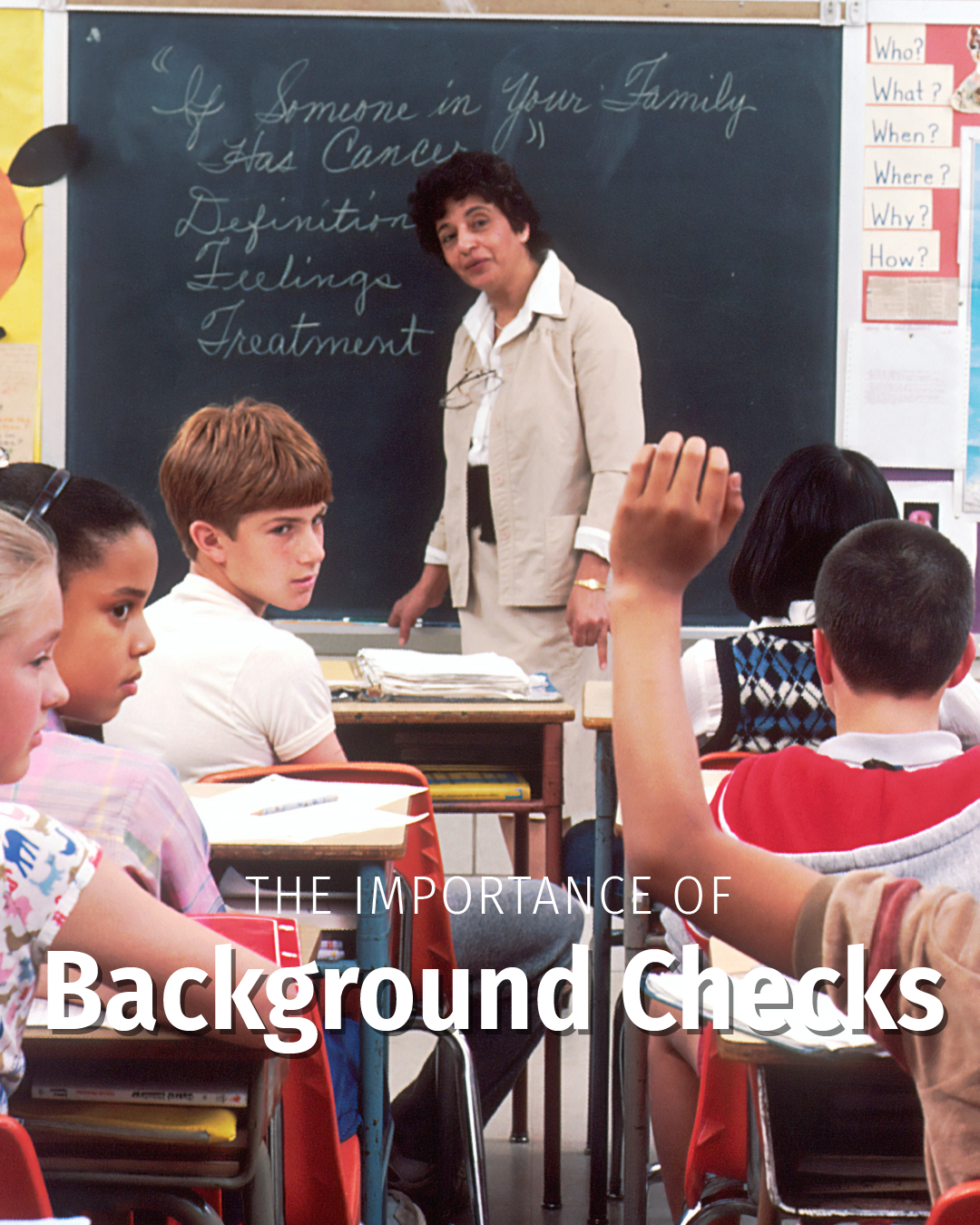
Employing trustworthy, quality educators is one of the most important responsibilities of an administrator, and background checks are a fundamental part of ensuring this trustworthiness. Considering that the well-being of students is on the line, thorough background checks should unquestionably be a deciding factor in the hiring process. They are a cornerstone of any good risk management program.
While regulations vary from state to state, there are certain federal resources, including the Adam Walsh Act, the National Sex Offender Registry and the Uniform Conviction Information Act (UCIA) that can help educational facilities ensure the integrity of their teachers. Using these and other resources, you will ensure that the educators you hire live up to your community’s standards.
Federal Resources
Whether or not your state law requires it, these federal resources should be an integral part of your background screening process:
- The Adam Walsh Child Protection and Safety Act of 2006 allows various educational and child welfare entities access to the FBI repository of criminal history information. The ISP Bureau of Identification (www.isbe.state.il.us/pdf/Adam_Walsh.pdf) has more information.
- The National Sex Offender Registry, also known as the Dru Sjodin National Sex Offender Public Registry, is maintained by the U.S. Department of Justice and is a cooperative agreement between states that maintain sex offender registries and the federal government. Access the registry at www.nsopw.gov.
Advantages of Pre-screening
Job applicants with a criminal record may not disclose this information. Therefore, consider these advantages of pre-screening potential employees using a simple fingerprint-based check through the police and FBI:
- Discourages applicants from hiding a criminal background or falsifying their credentials.
- Eliminates any uncertainties about applicants in the hiring process.
- Demonstrates due diligence to hire applicants that do not pose a liability.
- Encourages honesty while going through the hiring process.
Taking Further Steps
Beyond screening an applicant using federal resources and doing a basic criminal record check, take a risk-focused approach to determining which additional
levels of screening to implement. Use the type and sensitivity of the open position to gauge the appropriate amount of screening. Further verification might include:
- Identity verification
- Social Security number verification
- Employment verification
- Education verification
- Professional license verification
- Motor vehicle reports
- Drug testing
Obligations and Outside Providers
To simplify the task, you may find it helpful to outsource the process to a background screening service provider. For many screening tasks, such as criminal background checks, outside providers can be faster and more thorough. It is important that when selecting such a provider that you consider its financial statements and health, its hiring and employment processes, identity theft safeguards and, of course, service offerings.
You have several obligations to the applicant under the Fair Credit Reporting Act (FCRA).
- Any applicant on whom an institution performs a background screen must give his or her written authorization to conduct the report.
- If you ultimately deny employment, you must provide notification through pre-adverse action and final adverse action notification letters.
The stakes when hiring educators are high. The community relies on you to take the appropriate measures to ensure students’ safety.
For More Help
If you need more information about protecting yourself from liabilities associated with hiring and termination, contact Robins Insurance Agency, Inc.. Our insurance experts can keep you covered and give you peace of mind.
